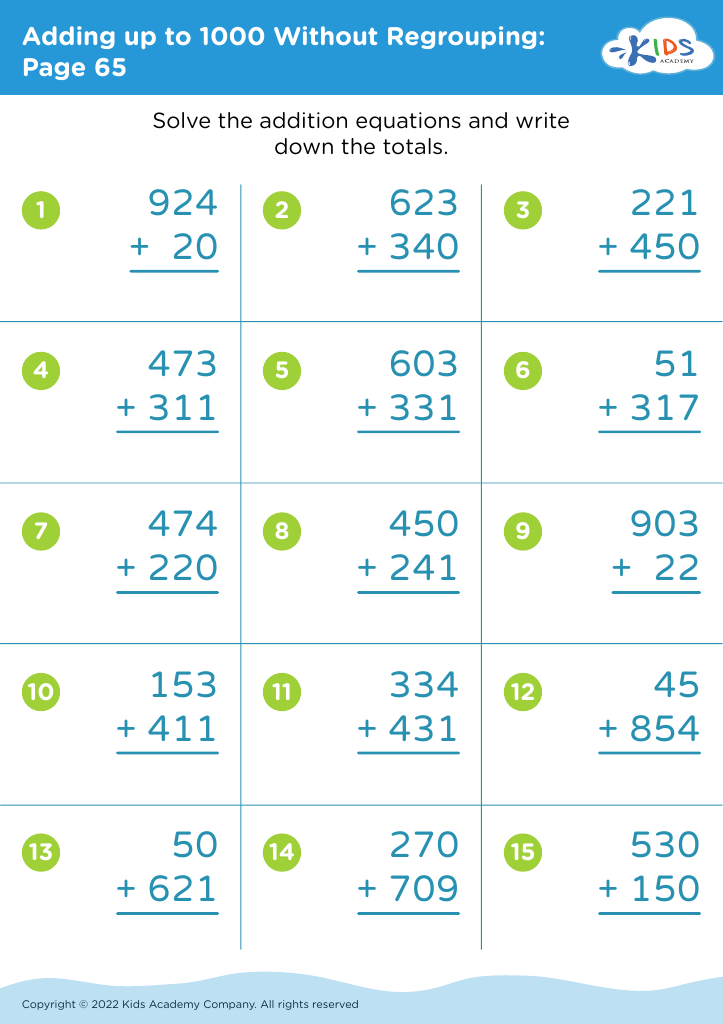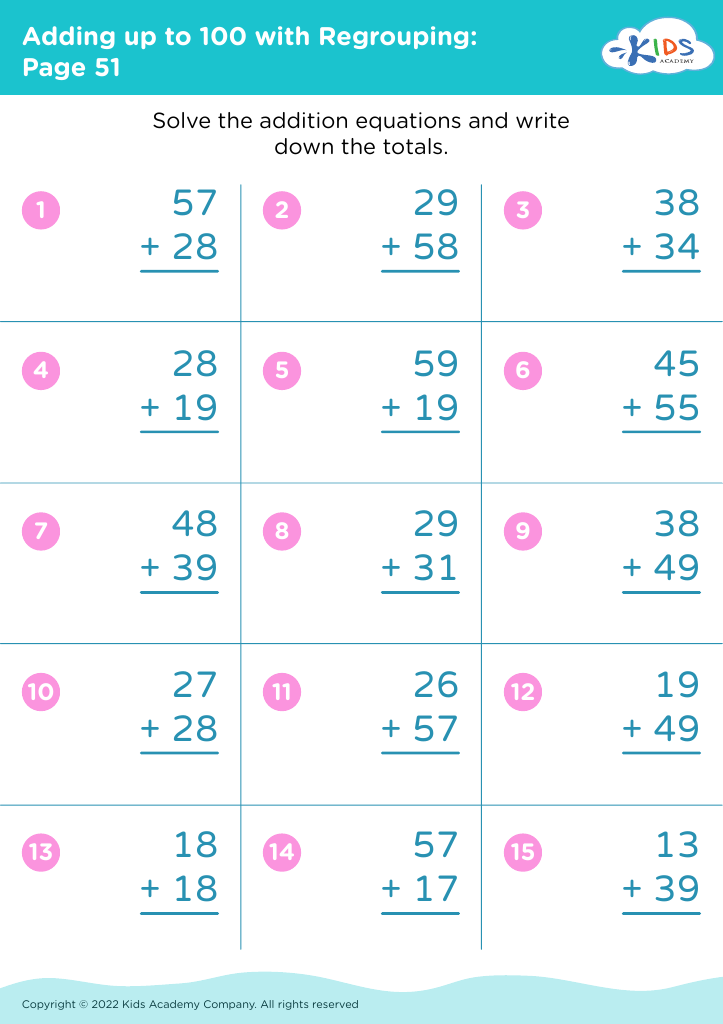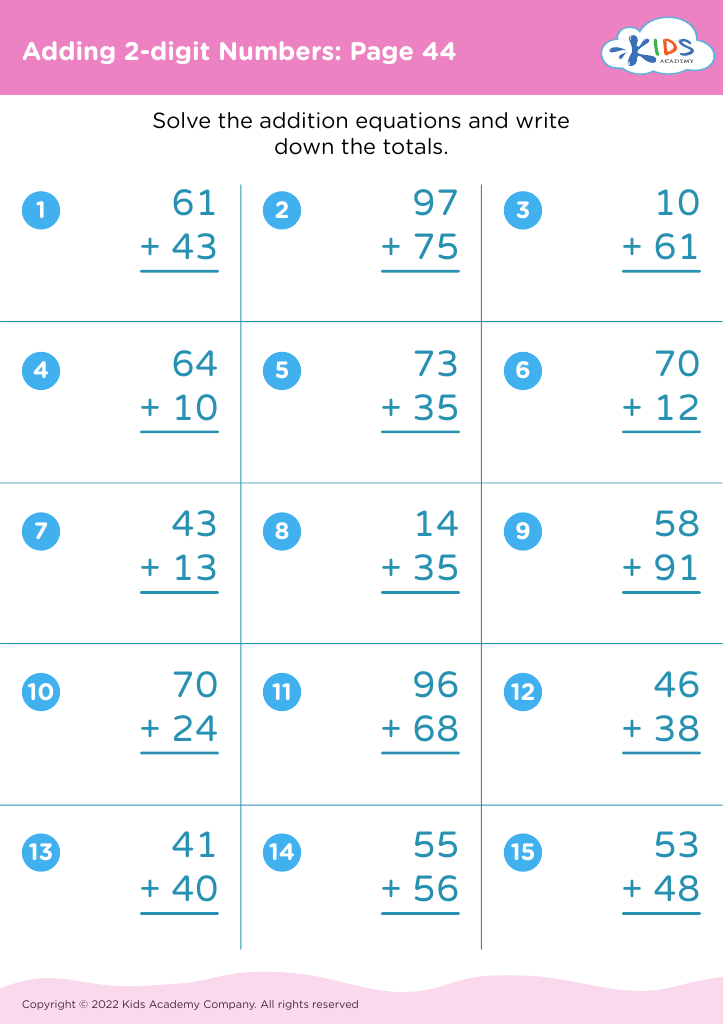Develop analytical thinking Addition & Subtraction Worksheets for Ages 6-7
3 filtered results
-
From - To
Enhance your child's analytical thinking skills with our engaging Addition & Subtraction Worksheets designed specifically for ages 6-7. These printable worksheets provide a fun and interactive way for kids to practice essential math concepts while honing their problem-solving abilities. Each worksheet encourages critical thinking through varied exercises, including word problems and visual aids, helping learners grasp the reasoning behind addition and subtraction. Parents and educators alike will appreciate the structured approach that fosters comprehension and encourages a love for math. Dive into our collection and support your child's journey to becoming a confident and capable thinker in math and beyond!
Parents and teachers should prioritize the development of analytical thinking in addition and subtraction for children aged 6-7 because this foundational skill set enhances not only mathematical proficiency but also critical life skills. At this age, children are learning to approach problems systematically, make connections, and develop reasoning skills. Analyzing problems helps them to understand underlying concepts rather than just memorizing facts, leading to a deeper comprehension of mathematics.
Fostering analytical thinking promotes resilience in problem-solving. When children evaluate different strategies for addition and subtraction, they learn to navigate challenges and find multiple pathways to a solution. This cognitive flexibility is essential for their overall academic development in later years, where more complex reasoning is required.
Moreover, strong analytical skills in mathematics can translate to enhanced performance in other subjects and daily life, such as logical reasoning in science or strategic thinking in social situations. For parents and teachers, supporting this development through engaging activities, discussions, and practice can make learning enjoyable while cultivated a growth mindset. Overall, investing time in developing analytical thinking during these formative years lays the groundwork for lifelong learning and success.
























